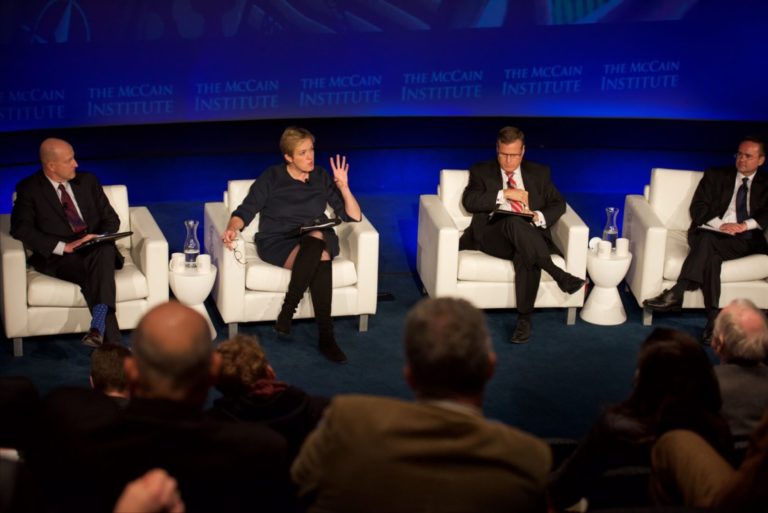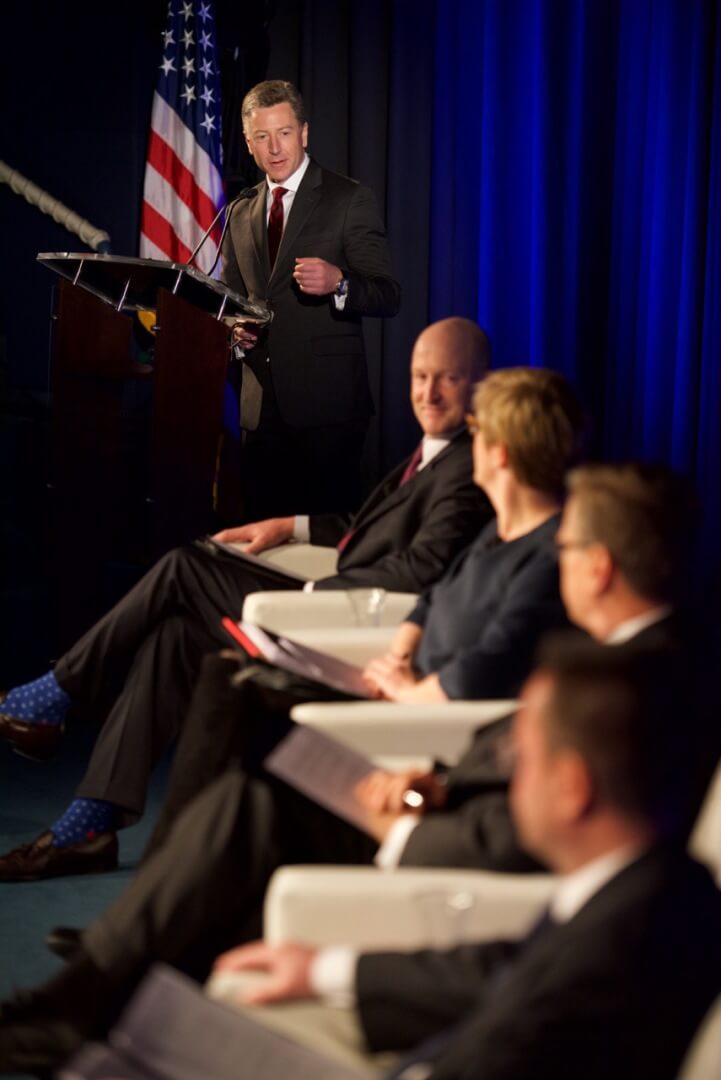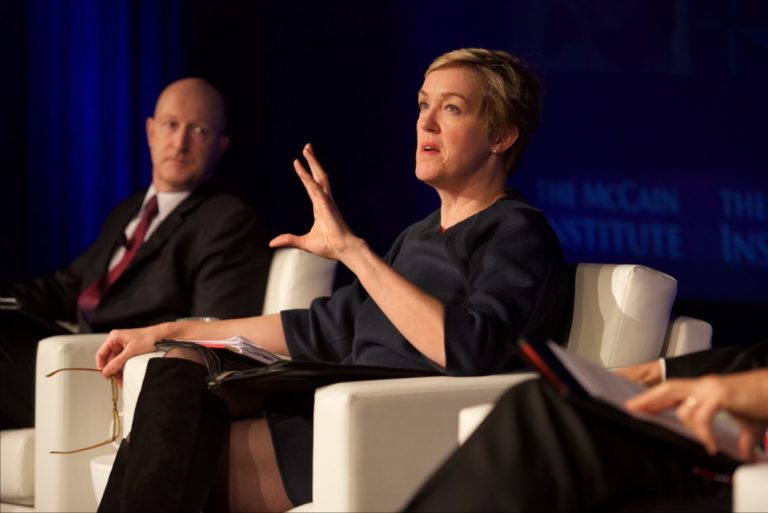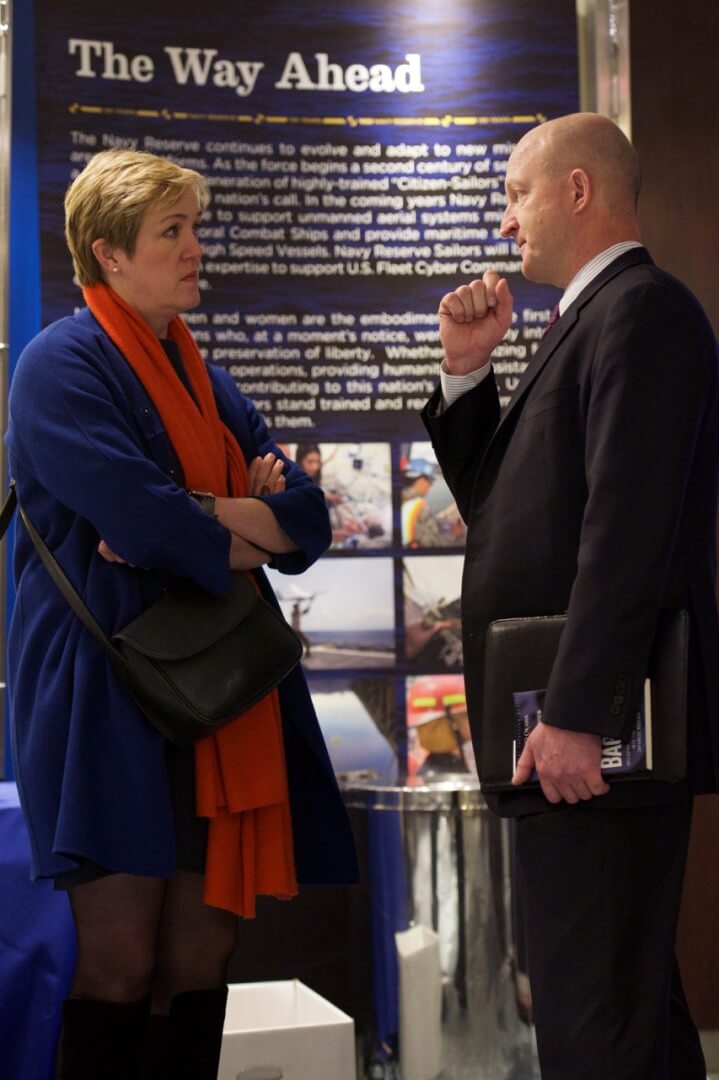Video: Event Recap
Event Summary
THE DEBATE
On Thursday, December 3, 2015, the McCain Institute for International Leadership at Arizona State University hosted the debate: “Is It Time for the United States to Pivot Back to Europe?”
The debate centered on Europe’s role in U.S. foreign policy and whether the United States should engage more in Europe or focus its attention on other regions, such as Asia and the Middle East.
THE KEY ARGUMENTS
Arguments that the United States should pivot back to Europe:
1. Europe offers a militarily capable partner to the United States and NATO is the most effective and tested multilateral force in the world. We need these capabilities to address the myriad of crises facing both Europe and America today.
2. The challenge now posed by Russia threatens the very fundamentals of European security and requires more U.S. leadership and joint transatlantic action. The United States is not adequately postured in Europe to respond to the growing Russian threat. The United States pulled troops out and Europe downsized its own forces while Russia embarked on a long-term military modernization.
3. By helping to address European security concerns, the United States has the best chance of gaining Europe’s support on key challenges the United States faces in the Middle East, Africa, and Asia.
Arguments that the United States should not pivot back to Europe:
1. Long-term trends show that the center of gravity in global economic and military terms is shifting from the “West” to the “East.” With growing populations, economies, and security challenges to confront, the United States needs to devote more attention to the Asia-Pacific.
2. Europe has the wealth and potential capabilities necessary to address its own security challenges; the United States should not perpetuate a “free rider” situation by taking on issues on Europe’s behalf.
3. “Europe” – or more precisely the European Union – is in disarray, overwhelmed by everything from a deficit and debt challenges to refugees to strangulating regulations. The United States should focus on a few key bilateral relationships such as the UK and Poland, but not the European Union as a whole.
POLICY RECOMMENDATIONS
Ian Brzezinski argued that the next U.S. administration must demonstrate with greater credibility the United States’ readiness to use military force to support its allies and partners.
Constanze Stelzenmüller said that the Obama administration actually has a good record of engaging with Europe. The next administration should focus on encouraging Europe to take more responsibility for its own security.
Patrick Cronin asserted that the next U.S. administration must focus on rebuilding America’s global strength in all regions – Europe, the Middle East, and Asia.
Nile Gardiner said that the European Union is a failure and the United States should stop engaging with Brussels. Washington should not encourage the centralization of power in Europe but rather support self-determination, national sovereignty, and freedom on the European continent.
This project was funded by The European Union.
THE DEBATERS
ARGUING IN FAVOR OF A PIVOT BACK TO EUROPE:
Ian Brzezinski
Senior Fellow, Atlantic Council
Constanze Stelzenmüller
Robert Bosch Senior Fellow, Brookings Institution
ARGUING AGAINST A PIVOT BACK TO EUROPE:
Patrick Cronin
Senior Advisor and Senior Director of the Asia-Pacific Security Program, Center for a New American Security
Nile Gardiner
Director of the Margaret Thatcher Center for Freedom, The Heritage Foundation
MODERATING THE DEBATE:
Teri Schultz
Freelance journalist, NPR, and CBS Radio







